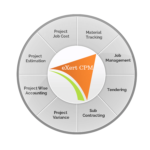Running a staffing agency can be a rewarding venture, especially in today’s rapidly evolving job market. Whether you’re looking to provide temporary or permanent staffing solutions, understanding the ins and outs of a staffing agency is key to success. This comprehensive guide explores everything from setting up your agency to finding the right candidates and maintaining client relationships.
What is a Staffing Agency?
A staffing agency is a company that connects employers with job seekers. These agencies help businesses find temporary, permanent, or contract workers, while also assisting job seekers in finding suitable employment opportunities. Staffing agencies serve as a bridge between talent and employers, ensuring both parties meet their needs efficiently. They often specialize in particular industries, skill sets, or regions, catering to both small and large-scale hiring requirements.
Types of Staffing Agencies
Temporary Staffing Agencies:
Temporary staffing agencies provide workers for short-term roles. This is ideal for projects with fluctuating workloads or companies looking to fill gaps during busy seasons.
Permanent Placement Agencies:
These agencies focus on finding full-time, long-term employees. They are often used by companies looking to fill key positions that require a permanent hire.
Contract Staffing Agencies:
Contract staffing agencies supply workers for specific projects or assignments that last for a predetermined period.
Why Start a Staffing Agency?
Starting a staffing agency can be a lucrative business opportunity, especially in today’s competitive labor market. Here are some key reasons why starting a staffing agency may be a wise choice:
High Demand for Talent
The job market is continuously evolving, and companies across various industries are constantly seeking skilled talent. A staffing agency can cater to this growing demand by connecting employers with qualified candidates.
Flexible Business Model
The staffing industry offers a flexible business model. You can choose to operate regionally or expand to multiple locations, catering to various industries such as healthcare, IT, finance, or hospitality.
Lucrative Profit Margins
Staffing agencies often charge a fee based on the candidate’s salary or an hourly rate. These fees can provide consistent revenue streams, particularly if you specialize in high-demand industries.
Lower Start-Up Costs
Compared to some other businesses, staffing agencies generally have lower start-up costs. You don’t need large facilities, heavy equipment, or extensive product inventories, reducing the capital required to get started.
Steps to Start Your Staffing Agency
Starting a staffing agency requires careful planning and execution. Below are the essential steps to follow:
Research the Market and Define Your Niche
Before starting a staffing agency, conduct thorough research to understand market demands, trends, and your potential target industries. Identify which sectors are most in need of talent and which skill sets are currently in demand.
Questions to Ask Yourself:
- What industries are experiencing talent shortages?
- What is the demand for temporary vs. permanent workers in my region?
- What specialized skills are in high demand?
Develop a Business Plan
A detailed business plan is crucial to ensure you have a roadmap for success. It should outline your goals, target market, budget, marketing strategy, and financial projections. Your business plan will also help secure funding if necessary.
Key Elements of a Business Plan:
- Executive Summary
- Company Description
- Market Analysis
- Services Offered
- Marketing and Sales Strategy
- Financial Plan
- Operational Plan
Register Your Business and Obtain Necessary Licenses
To operate a staffing agency, you’ll need to register your business and obtain relevant licenses and permits. These may vary by location, but typically include:
- Business License: Required for legal operation.
- Employer Identification Number (EIN): Used for tax purposes and to hire employees.
- Professional Licenses: Depending on the industry, certain licenses may be required (e.g., healthcare staffing).
Build a Strong Network
Networking is a fundamental part of the staffing industry. Establish relationships with businesses, recruiters, and industry professionals to grow your network. Building a solid database of contacts will help you access top-tier talent and business opportunities.
Ways to Network:
- Attend industry events and trade shows.
- Join local business associations.
- Engage with professional organizations related to your niche.
- Use online platforms like LinkedIn to connect with potential clients and candidates.
Source and Screen Candidates
Finding the right candidates is at the core of a staffing agency. Develop an efficient recruitment process to source, screen, and place top talent.
Key Components of Candidate Sourcing:
- Job Advertising: Use job boards, social media, and your website to attract candidates.
- Candidate Screening: Conduct thorough interviews, background checks, and reference checks.
- Database Management: Build a talent database with resumes, skills, and availability.
Build Relationships with Clients
Establishing and maintaining strong relationships with clients is crucial for long-term success. Understanding their needs and providing tailored staffing solutions will help you retain their business.
Tips for Building Client Relationships:
- Understand their requirements: Learn the specific skills and qualifications clients are looking for.
- Deliver consistent results: Proactively fulfill client needs by providing qualified candidates.
- Maintain clear communication: Regularly update clients on available candidates and project progress.
- Offer value-added services: Provide insights into labor market trends and help clients improve their hiring strategies.
Strategies for Growth and Success
Focus on Niche Specialization
Focusing on specific industries or skill sets can set you apart from generalist staffing agencies. Specializing in areas like IT, healthcare, or engineering allows you to build expertise and credibility.
Leverage Technology and Automation
Utilize recruitment software to automate repetitive tasks such as resume screening, scheduling interviews, and managing applicant tracking systems (ATS). This will save time and improve efficiency.
Expand Your Service Offerings
Consider offering additional services such as payroll processing, HR consulting, or employee training. Expanding your range of services can increase revenue and client loyalty.
Establish a Strong Online Presence
A well-designed website, active social media presence, and a professional LinkedIn profile can help attract both clients and candidates. Optimize your content for SEO to improve visibility.
Stay Competitive with Pricing and Quality
Ensure your fees are competitive while maintaining high service quality. Offering value-added services can justify slightly higher rates, especially if you deliver superior results.
Challenges and How to Overcome Them
Running a staffing agency isn’t without its challenges. Some common issues include:
Talent Shortages
To overcome this, focus on building strong networks and partnerships with educational institutions or training programs to access a larger talent pool.
Managing Client Expectations
Clearly define your capabilities and the scope of your services to set realistic expectations. Over-deliver on commitments to build trust.
Cash Flow Management
Staffing agencies rely on a steady stream of payments from clients. Create a robust financial plan, manage accounts receivable efficiently, and establish clear payment terms.
Competition
Differentiate your agency by providing unique value propositions like specialized expertise, high-quality candidates, and exceptional customer service.
Conclusion
A staffing agency can be a highly profitable and rewarding business venture when executed properly. By following the steps outlined in this guide—researching your market, building strong client and candidate relationships, leveraging technology, and focusing on niche specialization—you can position your agency for long-term success. Keep adapting to market changes and refining your strategies, and you’ll be well on your way to building a thriving staffing agency.












